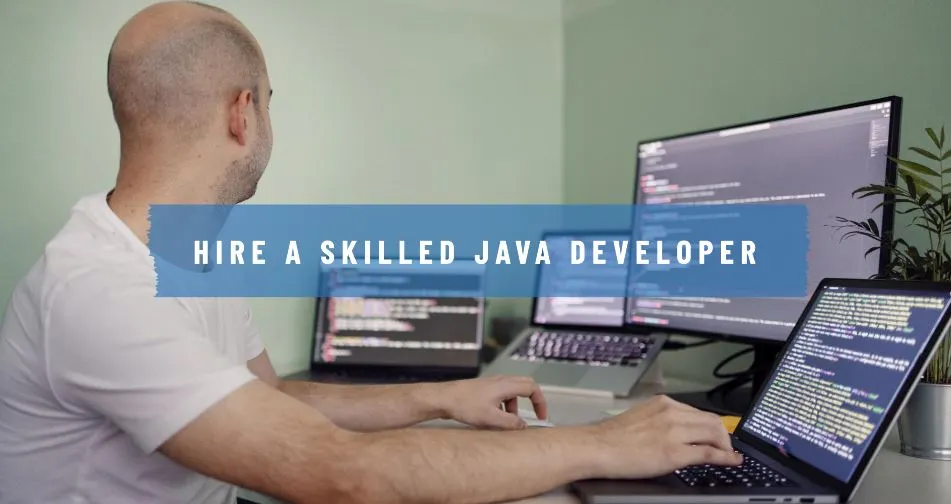First of all, if you want to develop software, then Java developers are considered among one of the most crucial things for hiring. This is because Java, per se, is an extensive programming language used for everything-from mobile applications to developing large-scale business applications. How to hire Java developer in the simplest way? This is a question the guide will explain.
Why You Should Hire a Java Developer
Java is a powerful language, and many companies believe in it. Here are some reasons why it is important to hire Java developer:
- Works on Virtual Machine: Java can run on different devices without needing changes, making it very flexible.
- For large-scale projects: Large companies make use of Java in developing large applications because it is reliable, supporting a large number of users.
- Built-in security: Java offers a high notch of security features, enabling the protection of applications, especially those that deal with information that is sensitive.
- Large community: There are plenty of Java developer out there, so resources, libraries, and even tools for your project are in abundance.
Know what you need before you get started.
Before you start looking for a Java developer to hire, it is critical to know what you want. Consider the following:
- How complex is your project?: Be it a simple app or a complicated system. It’s always good to know what kind of developer you need for the job.
- How Many Developers Do You Need?: The number of developers you need depends on the size of the project and how quickly you need it.
- What Technologies Will You Use?: Specify what Java utilities and frameworks will be used, these will be technologies such as Spring and Hibernate.
Different Types of Java Developers
When you want to hire Java developer, it’s good to know the different levels of experience they may have:
- Junior Java Developer: This is usually somebody with less than two years of experience. A person in this position should have some basic knowledge of Java and some general programming.
- Mid-Level Java Developer: The position requires two to five years of experience. Qualified professionals must be familiar with Java frameworks and databases.
- Senior Java Developer: With at least five years of experience in the field, they should have expertise in adding value with Java and managing projects at a time.
- Java Architect: He designs the overall architecture of applications but needs more profound experience and knowledge.
Writing a Clear Job Description
A good job description invites the right candidates. Include the following:
- Job Title: Be clear about the level you need (e.g., Junior, Mid-Level, Senior).
- Responsibilities: Enumerate the important tasks the developer will perform, such as code writing and teamwork.
- Required Skills: Mention the technical skills required, like proficiency in Java and experience with particular tools.
- Company Culture: Share your company values and what it’s like to work there. This attracts candidates that will lend themselves towards fitting well within your team.
Where to Advertise Your Job Opening
Once you have your job description, it is now time to share it. The following are some places to post your job:
- Popular job boards: LinkedIn, Indeed, and Glassdoor will help in reaching more people.
- Tech Communities: Share your issue on Java-specific online forums like Stack Overflow and GitHub because that’s where the developers are hanging out.
- Social Media: Advertise your vacancies on social networking sites such as Facebook and Twitter.
How to Conduct Interviews
A good interview process is the stepping stone to landing the right Java developer. The steps will be highlighted below.
Technical Interviews
- Coding Challenges: Come up with a set of coding problems relevant to real-world issues through online platforms such as HackerRank.
- Technical Questions: Be ready with basic Java, algorithm and data structure questions to judge their knowledge.
Assessing Soft Skills
- Behavioral Questions: These questions allow you to understand from where the candidate has come and how they solve problems and work with others.
- Cultural Fit: Find out whether his or her values align with your company’s culture to help him or her fit in.
Evaluation of Candidates
Now that the interviews are completed, it is time to evaluate the candidates. Consider the following:
- Resume Review: Look for relevant experience and completed projects that showcase their skills.
- Reference Checks: These are targeted at reaching previous employers for information about the work ethics and performance of the candidate.
Choosing the Right Hiring Model
Think about how you want to hire your developers. Here are some common options:
- Full-time: Suitable for long-term projects where you need dedicated resources.
- Contractual Hiring: This serves for a short-term project or when you need certain expertise for a limited period of time.
- Freelancing: Through freelancing websites like Upwork or Fiverr, you can outsource certain tasks at relatively cheaper rates from freelancers.
Understanding the Costs
When planning to hire Java developer, consider the budget you’ll need. Salaries depend on:
- Experience Level: Junior developers will be paid less compared to senior developers.
- Location: Salaries are based on the developer’s location and associated cost of living.
- Industry: Certain industries pay better because of the specialized nature of the job to be executed.
In the United States alone, it is averagely in the neighborhood of $97,000 per year for a Java developer. Experienced Java developers earn over $131,000.
Wrapping Up
Hiring a good Java developer is always the right move that leads to success for your software projects. Knowing what you need, writing job descriptions, and offering an assessment of them will be an assurance of winning the best talent for your team. Let us remember: the right Java developer will be in a position to provide the required growth and technological success in the competitive world.




